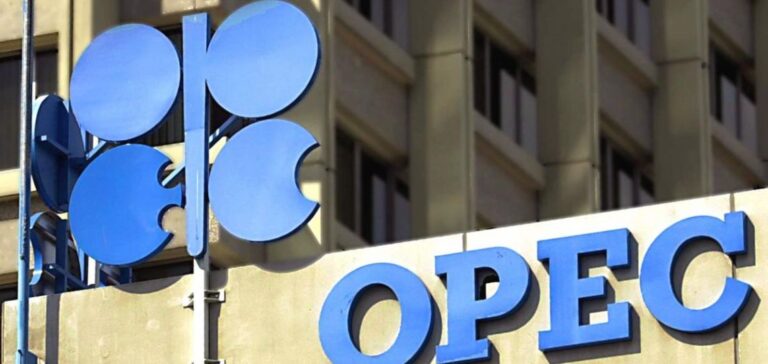Oil prices registered a sharp drop on Thursday following a dual announcement that shook the global market: the implementation of new import tariffs by the United States and a faster-than-expected production increase decided by the Organization of the Petroleum Exporting Countries (Opec). This combination has fuelled concerns over a slowdown in global economic growth, which could dampen crude demand.
Trade pressure and economic uncertainty
At 12:05 GMT (14:05 in Paris), the price of a Brent barrel from the North Sea for June delivery fell by 5.67% to $70.70, while the American benchmark, West Texas Intermediate (WTI), for May delivery dropped 6.05% to $67.37. This trend is attributed to a renewed protectionist push from the White House, which introduced a minimum 10% duty on all imports, with additional tariffs targeting countries considered economically adversarial.
The People’s Republic of China, the world’s leading crude oil importer, now faces a 34% import tax on its goods to the U.S., in addition to the existing 20% tariffs. Although energy products are formally exempted, the sector remains vulnerable to macroeconomic consequences. Arne Lohmann Rasmussen, analyst at Global Risk Management, notes that “energy products are generally sensitive to economic slowdowns.”
Opec’s shift in strategy and market response
Simultaneously, Opec+ announced a larger-than-expected increase in oil production starting in May. The oil cartel, along with its partners, plans an output adjustment of 411,000 barrels per day, significantly above the 137,000 barrels expected based on April’s pace. This decision accelerates the previously gradual reintroduction of withheld volumes by eight member states.
According to Ole R. Hvalbye, analyst at SEB, “it certainly adds additional weight to the market, a double impact.” He also remarked that the current dynamic may reflect “an Opec+ more influenced by politics,” in a context where President Donald Trump reportedly pressured the group to increase global supply.
Analysts now anticipate potential economic retaliation from U.S. trade partners. Such developments could extend the ongoing price decline, especially as underlying supply and demand fundamentals remain under strain.





















